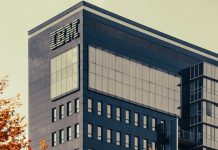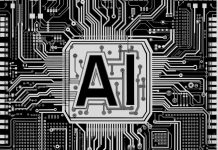In a groundbreaking report titled "The economic potential of generative AI: The next industrial revolution," McKinsey & Co. highlights the tremendous impact generative AI can have on global productivity. The study reveals that generative AI, which enhances worker capacities by automating certain tasks, has the ability to automate 60–70% of employees' jobs. This level of automation presents a significant opportunity for businesses to streamline operations, increase efficiency, and reduce costs. McKinsey estimates that without generative AI, AI and analytics use cases alone could add $11 trillion to $17.7 trillion to the global economy each year. However, with the integration of generative AI, these figures could be further amplified by 15%–40%, potentially unlocking unprecedented levels of productivity. The report identifies key sectors that stand to benefit the most from generative AI. Customer operations, marketing and sales, software engineering, and research and development (R&D) are projected to realize 75% of the value generated by generative AI. For example, sales productivity could increase by 3–5%, while marketing productivity could see a boost of 5–15% of overall marketing spending. Additionally, software engineering productivity could improve by 20–45% of annual spending, while R&D productivity might experience a 10–15% uplift through the optimization of product quality and cost reduction measures. Generative AI is not limited to specific sectors; its potential spans across multiple industries. In banking, it could enhance productivity by $200–$340 billion, while in retail, automation of customer service, marketing, sales, and inventory and supply chain management could lead to a $310 billion boost. The pharmaceutical and medical goods industries could also benefit greatly, as generative AI's ability to shorten the typically lengthy drug development cycle could unlock $61–$110 billion. While the promises of generative AI are profound, McKinsey emphasizes the importance of strategic planning and careful consideration of its implications. Business leaders are urged to move swiftly to capitalize on generative AI's potential and mitigate any potential hazards. Governments, too, play a crucial role in monitoring the technology's evolution and addressing any regulatory challenges that may arise. The impact of generative AI on the workforce cannot be understated. McKinsey predicts that between 2030 and 2060, up to 50% of work tasks could be automated, with the midpoint of this transition occurring a decade earlier than initially anticipated. Workforce planning and retraining must be accelerated to ensure a smooth transition for employees, while individuals must embrace the opportunity to master the uses of generative AI and acquire new skills. However, harnessing its full potential will require proactive measures from both business leaders and governments, as well as a collective effort to address challenges and seize the benefits. By embracing generative AI, societies can unlock a new era of productivity and economic growth, ushering in a future that empowers both humans and machines to thrive together.
The Transformative Power of Generative AI: Revolutionizing the Global Economy
The consulting giant’s report suggests that this emerging technology has the potential to boost global output by a staggering $2.6–$4.4 trillion, a figure that could revolutionize industries and reshape economies worldwide.
























